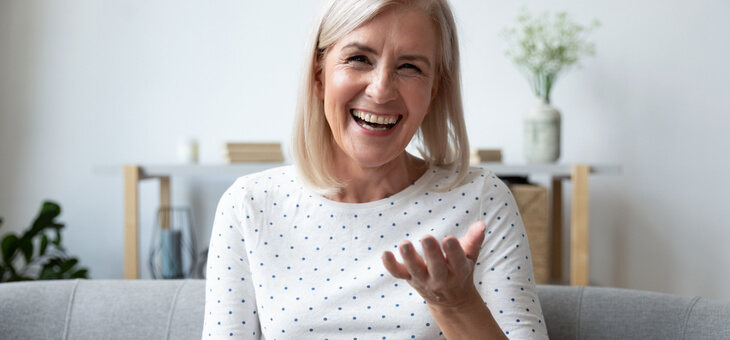How have your emotions changed as you’ve aged? Do you find you no longer fly off the handle as you once did? When your grandchildren do those things that irritated you when your kids did them, do you now simply smile and think, “Oh, that’s cute”?
As a 57-year-old, I feel I’ve mellowed over the past 10 or 15 years. Things that used to trigger me are now likely to lead to nothing more than a raised eyebrow or a gentle shake of the head.
Why is that? According to a new study, the most likely reason is simply that I’m older (though, as my kids would probably point out, not necessarily wiser).
Read: Stroke may be triggered by anger or emotional upset
The study, published in the Journal of Neuroscience last month, gave 249 participants aged 18 to 88, a series of 40 30-second clips to watch.
The film clips ranged in what the study’s authors refer to as “emotional valence”. They were either positive (e.g., babies laughing), neutral (e.g., weather report) or negative (e.g., documentary of the Rwandan genocide) in valence and consisted of a mixture of real-life and fictional footage.
Before watching each of the positive and neutral clips, participants were asked to simply watch the film clips and allow themselves to feel any emotions that naturally arose without trying to deliberately distract themselves from the content of the film clip or regulate their emotions in any way.
But for the negative clips, while half were given the same instruction as above, the other half were instructed asked to try to reduce (down-regulate) any unwanted distressing affect in response to the film clip by reappraising the contents of the clip.
Read: The Devil Wears Prada author on ageing
This gave the participants four potential task conditions: Positive Watch, Neutral Watch, Negative Watch and Negative Regulate. Participants were asked to record the magnitude of positive and negative responses, and report their perceived success at regulating their emotional response.
Analysis of the results found that positivity in response to emotional and neutral stimuli increases with age.
The results also indicated that, for those who were asked to regulate after watching negative clips, Positive Regulation was more pronounced with an increase in age. Allowing for other factors, the researchers concluded that this was a function of the effects of ageing.
University of NSW’s Dr Susanne Schweizer, who co-authored the study with Jason Stretton and Tim Dalgliesh of Cambridge University, said, “So we’re seeing an increase in positive emotionality with age. ‘Emotionality’ is an individual’s reaction to information, to emotional information – basically how we respond to our environment.”
The results corresponded to the so-called ‘Socioemotional Selectivity Theory’ of ageing, which posits that as we age, we become better at navigating our social environment by using a broader psychological toolkit to minimise drama.
Read: Missing mineral that explains why you are ageing faster
That theory competes with another, the ‘Ageing Brain Model’, which says that older people simply react more positively to distress because the areas in their brain that generate negative reactions don’t function as well.
But, says Dr Schweizer, “there is no evidence of that here”.
While emotions are generally viewed as irrational, they can nonetheless be useful. Leonard Mlodinow, author of a new book, Emotional: The new thinking about feelings, says we should look at our emotions as a tool to be harnessed.
He argues that “our feelings actually play an essential role in shaping our thoughts and decisions, helping us to react flexibly to situations and motivating us to pursue our goals.
“Emotion is not at war with rational thought, but rather a tool of it,” he says.
And it might be that those of us who once flew off the handle in response to something that annoyed us are now harnessing those emotions in the knowledge that our outbursts were a waste of energy.
Or perhaps we are simply more positive because we are getting old.
If you enjoy our content, don’t keep it to yourself. Share our free eNews with your friends and encourage them to sign up.

